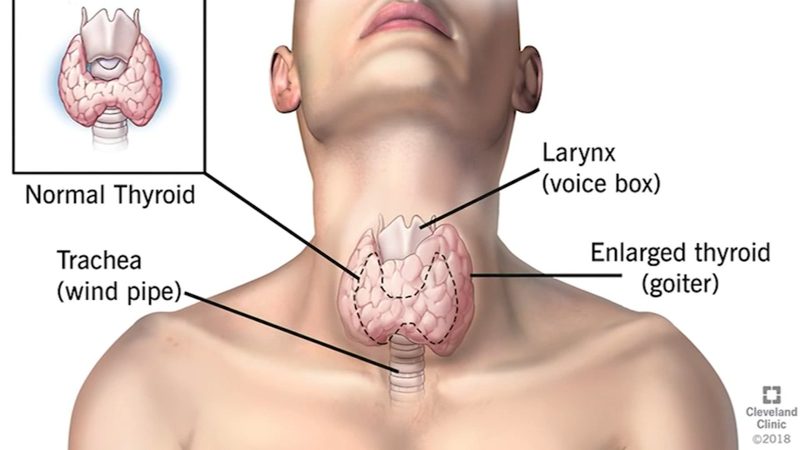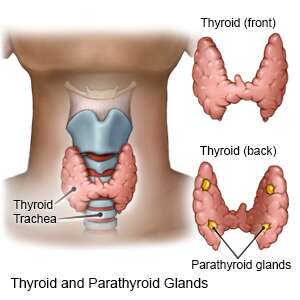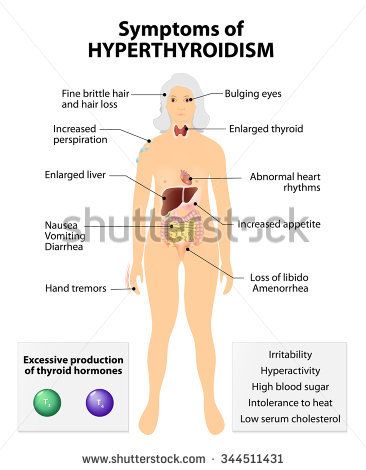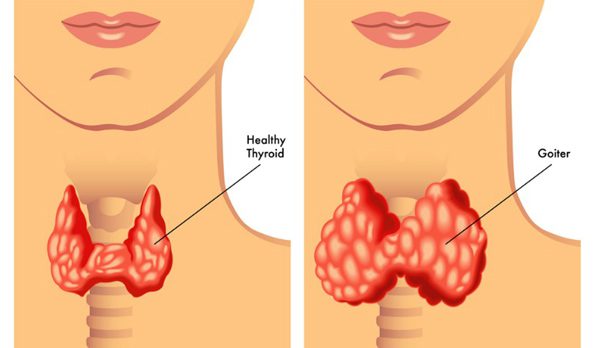The thyroid gland is a hormone-producing gland that produces the hormone that dictates the metabolic levels in our bodies. The thyroid gland is found in the lower part of the neck, below Adam’s apple.
The thyroid produces hormones (T3/T4) that control the metabolic rates, heart rates, blood pressure and temperature in our bodies. Thyroid hormones are also necessary for the growth and development of children.

What is Thyroid Disorder?
Everything in proportions is healthy. Too little or too much of anything is harmful. Similarly, a lack of the thyroid hormone in the body is called Hypothyroidism. While an excess of the hormone in the body is called as Hyperthyroidism. Both these conditions can mean a Thyroid Disorder.
Signs of a Thyroid Disorder
Both Hypothyroidism and Hyperthyroidism have different symptoms and signs. If you find the below-mentioned signs & symptoms, I will recommend you to consult the doctor to clarify your doubts. You can also opt for Nirogam’s ayurvedic treatment for disorders like thyroid.

Hypothyroidism
This disorder is also known as an underactive thyroid since the gland produces less than what is required. Hypothyroidism affects women more frequently than men. Mostly affecting people over 60, but it can be diagnosed at any age, however, it can only be identified through a hormone blood test.
Signs And Symptoms
The signs and symptoms of hypothyroidism vary from person to person. The severity of the condition also affects which signs and symptoms appear and when. The symptoms are also sometimes difficult to identify.
Early symptoms can include weight gain and fatigue. Since both these “symptoms” become more common as you age, independent of how your thyroid is functioning, it may be difficult to realize that these changes are thyroid caused, until more symptoms start to develop.
Later Stage
The symptoms of Hypothyroidism progress slowly over the years. As the thyroid slows more and more, the symptoms may become more easily identified. Of course, many of these symptoms also become more common with age in general. If you suspect your symptoms are the result of a thyroid problem or match with several of the symptoms of a thyroid problem, then visit a doctor who can get a blood sample test done to check if you have hypothyroidism.

Most common signs include:
- Excess Fatigue
- Depression
- Constipation
- Feeling cold
- Increase of dry skin
- Sudden Excessive Weight Gain
- Weakness in Muscles
- Lack of Sweating
- Decrease Heart Rate
- Elevated Blood Cholesterol
- Pain and Stiffness in Joints
- Drying and Thinning of Hair
- Impaired and Weakening of Memory
- Fertility difficulties or Menstrual changes
- Muscle Stiffness, Cramps and Aches
- Hoarseness of Voice
- Increased Sensitivity and Swelling of Face
What causes Hypothyroidism
An autoimmune disease
Your immune system is designed to protect your body’s cells against invading bacteria and viruses. When unknown bacteria or viruses enter your body, your immune system responds by sending out fighter cells to destroy the foreign cells, However, on certain occasions, the immune system may mistake a newly developed healthy cell for a foreign bacteria/virus and in doing so it attacks the entire group of healthy cells.
This is known as an autoimmune response. Hashimoto’s disease is an autoimmune condition and the most common cause of an underactive thyroid. This disease infects your thyroid gland and causes chronic thyroid inflammation. The inflammation can deter thyroid functioning and is hereditary.
Treatments for Hypothyroidism –
Hypothyroidism is a lifelong condition. For many people, medication reduces or alleviates symptoms. Hypothyroidism is best treated by using levothyroxine This synthetic version of the hormone copies the action of the thyroid hormone your body would normally produce. The medication is designed to return adequate levels of thyroid hormone in your blood. If the hormone levels are successfully restored to neutral, symptoms of Hypothyroidism are likely to disappear.
Hyperthyroidism
Excessive quantities of T4, T3 can cause a dangerously high metabolic rate. This is called a hypermetabolic state. In such a state, you may experience a rapid heart rate, high blood pressure, and frequent hand tremors. You may also sweat more than usual and develop a low tolerance for heat. Hyperthyroidism can cause an increase in bowel movements, weight loss, and, in women, irregular menstrual cycles.
Most common signs include:
- Sudden Increase in Appetite
- Nervousness
- Restlessness
- Inability to concentrate
- Hand Tremors
- Mood Swings
- Weakness
- Irregular Heartbeat
- Having Difficulty Sleeping
- Hair turning thin and brittle
- Itching
- Increased Hair Loss
- Nausea and Vomiting
- Development of Breasts in Men
The symptoms below require immediate consultation with doctors
- Constant Dizziness
- Constant Shortness of Breath
- Frequent Loss of Consciousness
- Fast and Irregular Heart Rate

What causes hyperthyroidism?
Probably one of the most common causes of hyperthyroidism is Graves’ disease. It is an autoimmune disease that creates an antibody element called thyroid-stimulating immunoglobulin/ TSI. The TSI in tune causes overproduction of thyroid hormones.
Graves’ disease runs in families and is more commonly found in women. Furthermore, iodine causes overproduction of thyroid hormones. So people whose iodine intake is more than suggested either by foods or any external supplements are likely to develop hyperthyroidism.
Also, some women may develop hyperthyroidism during pregnancy or in the first year after giving birth.
These were a few signs and symptoms for both kinds of Thyroid Disorders.
Treatment for hyperthyroidism –
If your thyroid gland produces too much thyroid hormone, you have a condition known as hyperthyroidism. Treatment for this condition aims to reduce and normalize thyroid hormone production. Some treatments damage the gland causing the gland to permanently produce lower quantities of the hormone. This often occurs after treatment with radioactive iodine.
Surgical removal of your thyroid –
If your entire thyroid gland is removed due to thyroid problems, you’ll develop hypothyroidism. Using thyroid medication for the rest of your life is the primary treatment.
If only a portion of the gland is removed, your thyroid may still be able to produce enough hormones on its own. Blood tests will help determine how much thyroid medication you’ll need.
Surgeries and invasive procedures are always harmful to the body regardless of the precision or expertise, problems such as thyroid have a lot of solutions in the realm of Ayurveda. Thyroiditis is a naturally occurring illness and Ayurved has a lot of naturally occurring remedies for it as well. A proper balance of yoga, diet, as well as supplements of natural herbs like Brahmi, Guggul, Shilajit in proportions, can help you combat thyroid altogether.

